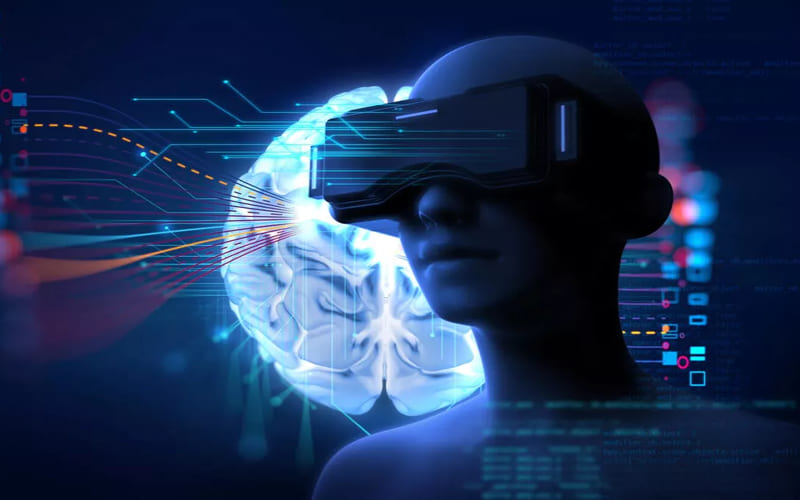
From ChatGPT to Bard: Is AI Finally Taking Over Content Creation?
Posted on February 21, 2024
Artificial intelligence has rapidly transformed from a tool to a creator in the field of content creation. With improvements in natural language processing and machine learning algorithms, AI models such as ChatGPT can now produce human-like text that blurs the distinction between machine-generated and human-written content. Given this evolution, it is reasonable to ask whether machines will ultimately replace humans as creators through their growing capabilities -or if they are already capable enough- in generating content on their own.
Leading the AI-driven revolution is ChatGPT, a sophisticated language model designed by OpenAI that employs deep learning techniques such as the Transformer model. With an impressive ability to comprehend and generate text resembling natural human conversation, ChatGPT excels at everything from addressing questions to crafting narratives. Its multifaceted capability of producing pertinent and logical content on diverse subjects makes it a valuable asset for content creators alike.
ChatGPT, an AI technology, showcases a pivotal advantage in its aptitude to scrutinize copious amounts of data and divulge significant patterns. Through endurance training on exhaustive databases that encompass written texts sourced from diverse origins, ChatGPT simulates the composition flair, mannerism and formation of human writing. This facilitates production of textual content which is not only grammatically accurate but also consistent with style; barely discernible from write-ups generated by humans themselves.
Furthermore, AI-based content creation presents numerous benefits as compared to conventional techniques. Its capacity for producing content at remarkable speeds enables quick iteration and scalability- a noteworthy advantage in sectors where time-to-market is of paramount importance such as social media management, news reporting, and content marketing domains. Moreover, the automation abilities of AI can liberate human creators from repetitive tasks providing them with an opportunity to channel their inventive energies towards more strategic areas.
AI-driven content creation, regardless of its potential, is subject to limitations and ethical concerns. ChatGPT’s AI models are proficient at producing text by following established patterns; nevertheless, they do not have genuine comprehension or awareness. They cannot grasp context, emotions nor cultural subtleties similarly to how humans can perform these tasks. Consequently,this deficiency may result in inaccuracies,biasness,such as insensitive generation of sensitive topics within diverse cultural environments .
Moreover, fears have arisen regarding the potential effects of AI on human creativity and employment. With advancements in AI enabling it to create content with increasing proficiency, there is a worry that occupations occupied by creative professionals such as writers and journalists may be substituted – resulting in unemployment and adverse impacts upon their livelihoods. What’s more, through automation propelled by AI-driven commodification of content could undervalue the artistry associated with writing consequently erasing diverse perspectives from media/ literary views too.
Although there are obstacles to overcome, the alliance between AI and human creators can be greatly beneficial. Instead of fearing its potential harm, numerous content creators view AI as a potent asset that supplements their abilities and intensifies their efficiency. With the help of artificial intelligence in areas such as generating ideas for content creation, scrutinizing data analytics or translating languages; humans behind creative works have been relieved from performing tedious jobs allowing them more time on higher-level tasks requiring empathy, intuition & creativity.
Additionally, content creation powered by Artificial Intelligence possesses the capacity to decentralize access to information and magnify unheard voices. By equipping people with automated translation, transcription, and generation tools for content production purposes; AI can overcome language impediments allowing individuals from diverse linguistic backgrounds an opportunity to showcase their outlooks and narrate stories globally. This inclusiveness coupled with availability is critical in promoting a media space that affirms diversity while fostering equity; both of which are fundamental values requisite for societal growth.
To summarize, although AI-based platforms such as ChatGPT have made commendable progress in generating content, the prospect of it entirely dominating this field is a multifaceted and intricate matter. While AI technology offers unmatched swiftness, versatility and proficiency for creating content, it also presents obstacles relating to precision, partiality and ethical standards. Rather than perceiving artificial intelligence as a substitute for human imagination quotient (IQ), we should acknowledge its potential as a robust support system that amplifies human creativity’s capabilities significantly. Ultimately surpassing limitations shall be possible only through synergistic collaboration between machine assistance and creative humans who bring their unique abilities into play while producing innovative ideas or art forms collectively ensuring successful project executions for the future world!
